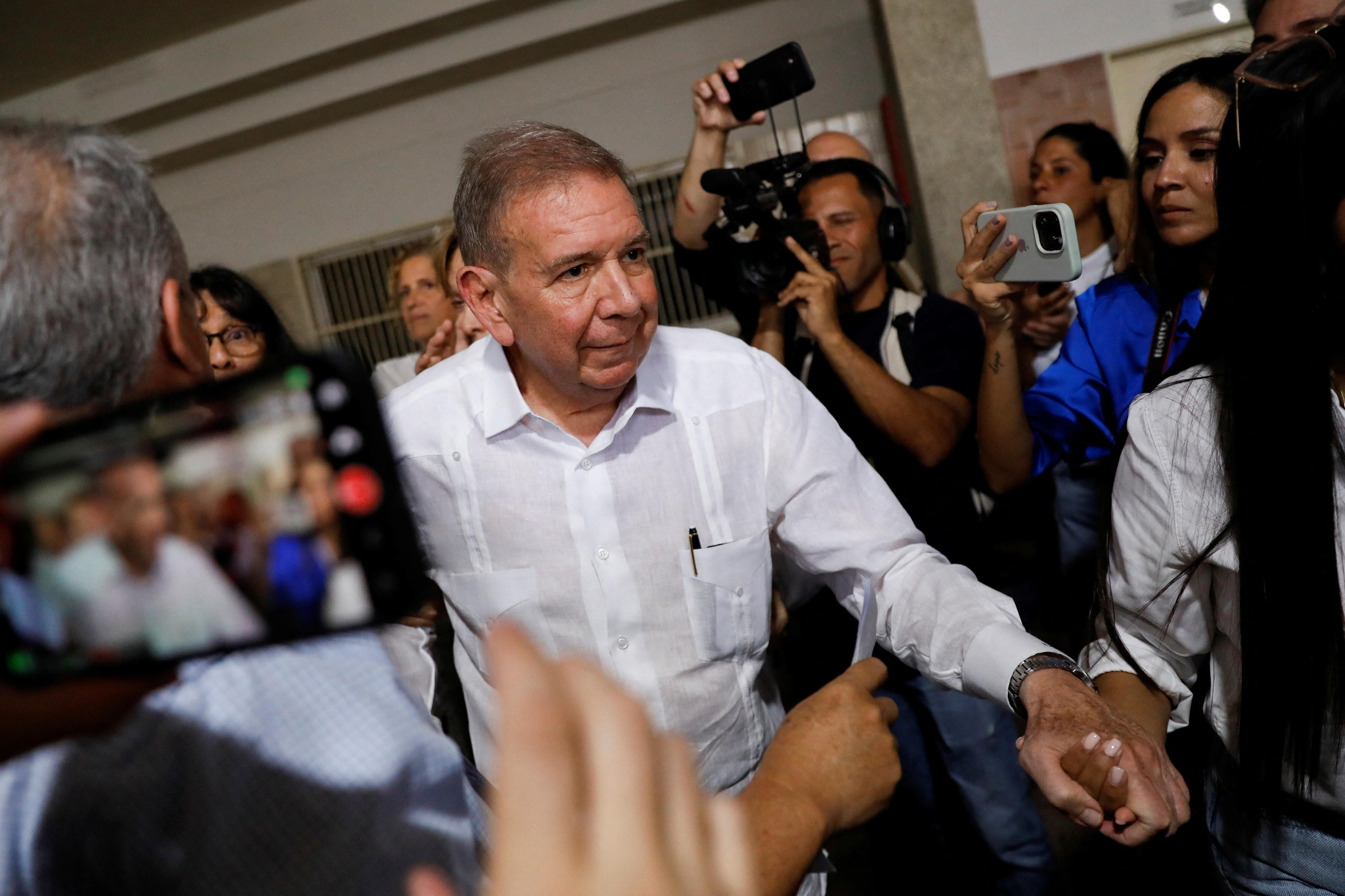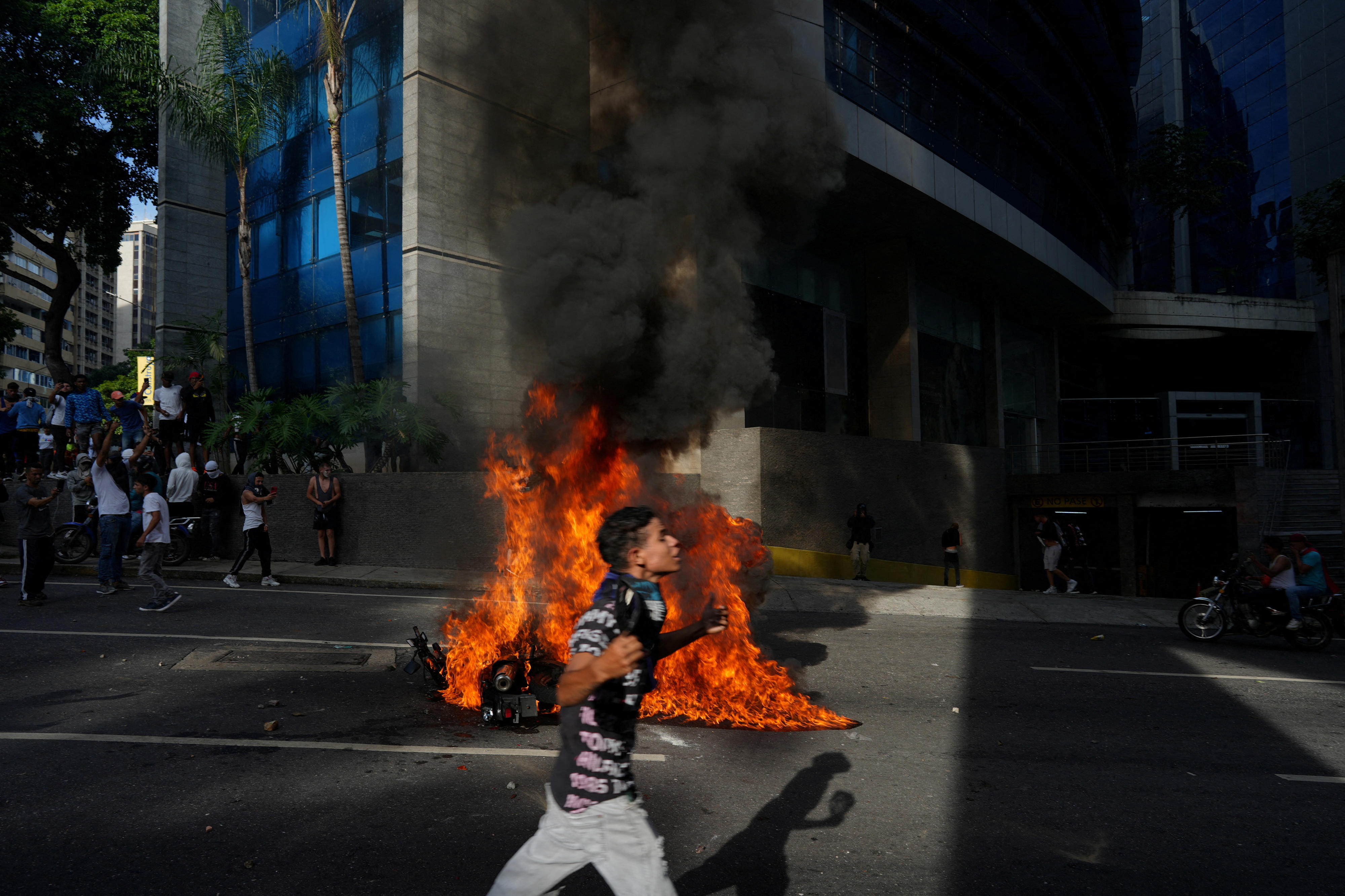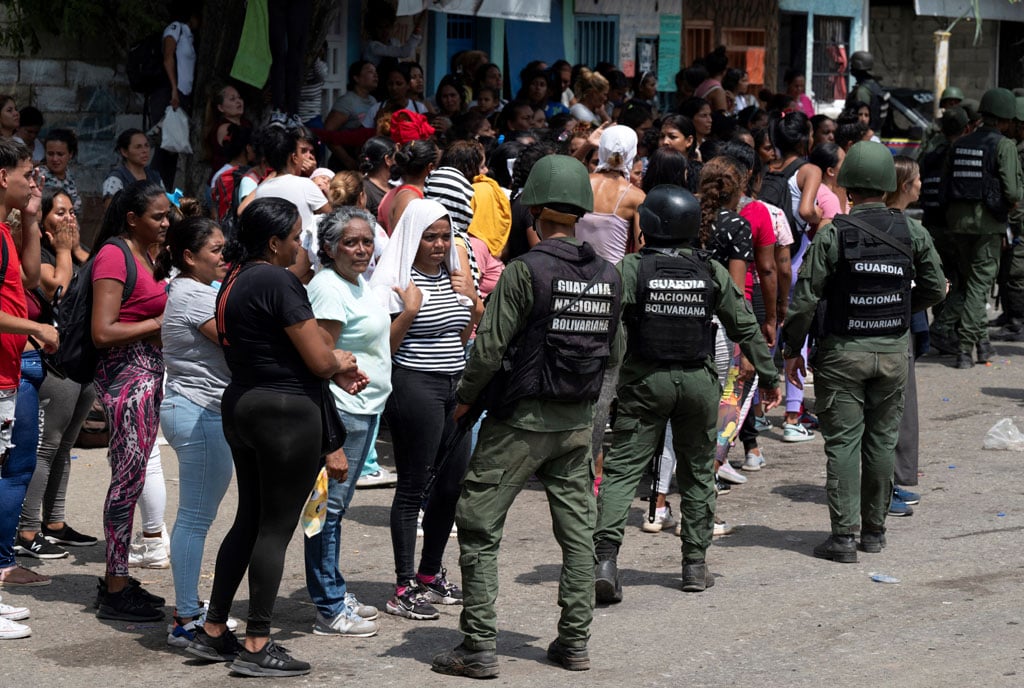Venezuela opposition leader Gonzalez lands in Spain seeking asylum

Venezuelan opposition presidential candidate Edmundo Gonzalez looks on on the day he casts his vote in the country's presidential election, in Caracas, Venezuela July 28, 2024. PHOTO/REUTERS
What you need to know:
- Gonzalez sought refuge in Dutch, Spanish embassies
- Left Venezuela amid crisis over disputed election result
- A sad day for democracy,' says EU's Borrell
- Maduro says he won vote, sees plot against his government
Venezuelan opposition presidential candidate Edmundo Gonzalez flew into Spain on Sunday to seek asylum, Madrid said, hours after quitting his country amid a political and diplomatic crisis over July's disputed election.
Gonzalez - who has challenged President Nicolas Maduro's declaration of victory - arrived at the Torrejon de Ardoz military base with his wife, Spain's foreign ministry said in a statement.
The exit of the 75-year-old - seen by the U.S., the EU and other powers in the region as the winner of the disputed vote - came a week after Venezuelan authorities issued an arrest warrant for him, accusing him of conspiracy and other crimes.
"Today is a sad day for democracy in Venezuela," European Union foreign policy chief Josep Borrell said in a statement. "In a democracy, no political leader should be forced to seek asylum in another country."
Gonzalez "remains the best hope for democracy," U.S. Secretary of State Antony Blinken said in a post on messaging platform X. "We must not let Maduro and his representatives cling to power by force," he said.
Venezuelan Vice President Delcy Rodriguez said on Instagram authorities had given Gonzalez safe passage in a bid to restore "political peace". Spain's foreign ministry said there had been no official talks with the Venezuelan government on Gonzalez's exit.
Venezuela's opposition say the July 28 election resulted in a resounding victory for Gonzalez, and published vote tallies online that they say show he won.
Maduro has dismissed all such assertions and says there was a right-wing plot to sabotage his government.
Gonzalez's move to Spain marked another jolting shift in the fortunes of the former diplomat who came out of retirement and took over the candidacy in March, initially as a placeholder after opposition leader Maria Corina Machado and then another replacement could not stand.
Machado confirmed on X that Gonzalez was now in Spain, adding he had fled to protect his "freedom, his integrity and his life".
"The increasing threats, summons, arrest warrants and even the attempts at blackmail and coercion to which he has been subjected show that the regime has no scruples or limits in its obsession to silence him and try to break him," she wrote.
Gonzalez would continue to fight for the opposition from Spain, while she would continue to do so within Venezuela, Machado said, and vowed that he would be sworn in on Jan. 10, 2025, when the next presidential term begins.
EMBASSIES, TALKS
Spanish Foreign Minister Jose Manuel Albares told Spanish TV he had told Gonzalez "any person whose physical integrity or fundamental rights may be endangered would be welcomed in Spain and its embassy."
He added that his relocation to Spain had been planned for days and the foreign ministry said Gonzalez's asylum process would now start.
Gonzalez had sought refuge in the Dutch and then the Spanish embassy in Venezuela after the election, Dutch and Venezuelan officials said.
Dutch Foreign Minister Caspar Veldkamp said in a letter to his parliament on Sunday that Gonzalez had urgently requested refuge in the Dutch embassy the day after the election.
"At the beginning of September, Edmundo Gonzalez indicated that he ... wanted to leave and continue his fight from Spain", Veldkamp added.
Spanish officials, including former Prime Minister Jose Luis Rodriguez Zapatero, linked to diplomatic relations in the South American country in the past, were involved in a week of negotiations with Venezuelan authorities for Gonzalez to leave the country, a source with knowledge of the talks told Reuters, speaking on condition of anonymity.
OPPOSITION PRESSES FOR MORE PROTESTS
That Maduro allowed Gonzalez's departure despite the arrest warrant he was facing may soften some harsh recent international criticism of him.
Machado, though, remains subject of an investigation and has largely been sequestered at an unknown location since the vote, emerging only occasionally to lead rallies. Gonzalez's departure came less than 24 hours after security forces surrounded Argentina's former embassy in Caracas, now being protected by Brazil, where six opposition staffers have been sheltering since warrants were issued for them in March.
Attorney General Tarek Saab, who met with Gonzalez's lawyer this week and who has been one of the opposition's most strident accusers, held a press conference Sunday saying the government knew the "exact moment" Gonzalez entered the Spanish embassy and agreed to give him safe passage to leave the country.
In a recording obtained by Reuters after Gonzalez arrived in Spain, he said his exit from Caracas was "surrounded by pressure, coercion and threats."
"I trust that we'll soon continue the fight for liberty and the return to democracy in Venezuela," Gonzalez said.
The opposition is pressing for more street protests and international pressure for its victory to be recognized, but so far those tactics have borne no fruit amid waning attendance at anti-government rallies.
(Reporting by Belen Carreno, Ana Cantero and Corina Pons in Madrid, Vivian Sequera and Mayela Armas in Caracas, Anthony Deutsch in Amsterdam, and Julia Symes in Bogota; Editing by Aislinn Laing, Alexandra Hudson and Ros Russell)





